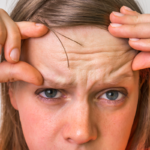Skin is one of the major parts of your appearance. Having healthy skin not just makes you look good but also boosts your self-confidence. With advancements in the beauty industry, we hear about new ways to keep the skin healthy. However, everything we see cannot be trusted, and thus it’s better to have an idea about the benefits and side effects before using any new product.
Biotin is one such ingredient that is getting popular these days. It shows great results on skin health, but is it entirely true? Let’s get to know everything about the consequences of using biotin.
What is Biotin?

Biotin is another term used to describe Vitamin B-7 or vitamin H. It is a major component of various fatty acids. It is known to play a crucial role in fat metabolism by breaking down fats into fatty acids, and thus, it is a key component necessary for the body to function properly.
It is soluble in water, and since the human body cannot store such vitamins, Biotin needs to be absorbed by consuming biotin-rich food. As per medical practitioners and dieticians, an adult human needs to intake about 30 micrograms of biotin per day.
Low biotin can have adverse effects on overall health, especially in the case of pregnancy. According to studies, around 40% to 60% of women face a deficiency of biotin, and therefore they go through deficiency symptoms like peripheral neuropathy, diabetes, insomnia, seborrheic dermatitis, and even depression.
Major Sources of Biotin

Biotin is found in many types of foods which is why it is rare that anybody gets a deficiency of vitamin B7. these are the food products that have biotin in a large amount:
- Cheese
- Green vegetables
- Mushrooms
- Nuts
- Egg yolk
- Legumes
- Yeast
- Cauliflower
- Yeast
- Organ meat
- Sweet Potato
Other than these, many supplements are available to intake the necessary biotin.
Benefits of Biotin for Skin

It is said that biotin is responsible for healthy skin. Here is what it does:
- Vitamin B-7 plays a role in energy production; it breaks down fats to form fatty acids that nourish the skin.
- It hydrates the outer layer of skin to protect it from drying out.
If you are taking biotin for skin, you may not notice results for a few weeks as, according to a review, it takes around 90 days for biotin to show positive effects on the skin.
Other Benefits of Biotin
Other than skin, biotin has many other benefits for the body. Some of them are as follows:
- It regulates Type 2 diabetes by lowering blood glucose levels and preventing insulin resistance.
- It even repairs damaged hair by improving the keratin infrastructure in the body. Keratin is the protein responsible for the formation of hair and nails.
- It is essential for pregnant women and new mothers. This is because, during pregnancy, the biotin levels tend to drop due to the breakdown of vitamins. So, to make sure that the fetus develops healthy, doctors suggested the intake of biotin.
- Since biotin plays a role in fat digestion, it has a major role in enhancing metabolic processes.
- Biotin also shows an effect in the increment of the immune system. As per research, biotin plays a role in producing white blood cells, which are responsible for the immune responses generated by the body against harmful bacteria and viruses.
- Dieticians even recommend biotin to those wanting to lose weight. Since it helps break down carbohydrates and fats, it helps reduce the excess fats from the body.
What Side Effects Can Biotin Cause?

Even though biotin is a vitamin, one should not consume it without the recommendation of a medical practitioner. This is because biotin is available in almost all the food items we consume in everyday life. High levels of biotin can cause adverse side effects in the body. Even if you have some medical condition, discussing it with a doctor before consuming biotin supplements is essential.
The significant side effects of high levels of biotin are false positive tests of thyroid disease. Other side effects can be:
- Skin rashes
- Poor digestion and metabolism
- Complications in insulin release
- Kidney and other organ failures
What Can Biotin Deficiency Lead To?
Although anybody rarely faces deficiency of biotin, however, in some cases, it can be seen. Here are some of the cases that can lead to biotin deficiency:
- It has been found that most people who have biotin deficiency consume large amounts of raw white eggs. White eggs or raw eggs contain avidin. Avidin is a protein that disturbs the absorption mechanism of biotin by the body even if you consume it.
- People with inflammatory bowel disease may also face biotin deficiency because the intestinal bacteria produce biotin in the intestines. In the case of bowel disease, the bacteria cannot have biotin.
- Alcoholic people and those with congenital biotin deficiency may also face an increased need for biotin because the medications used to treat liver cirrhosis, such as retinoids and beta-blockers, tend to result in biotin deficiency by breaking down the vitamins.
Symptoms of Biotin Deficiency

Biotin deficiency can be harmful. Prolonged deficiency can even lead to other health conditions. Thus, it is better to notice the symptoms and consult a doctor. The significant signs of biotin deficiency are:
- Excessive loss of hair
- Dryness of skin
- Brittle nails
- Conjunctivitis
- Exhaustion
- Numbness in arms and legs
- Depression
- hallucinations
However, if you face any of the above symptoms, it doesn’t need to be because of the biotin deficiency, as there can be other reasons. So do not assume anything before getting yourself tested.
By looking at the benefits and role of biotin in the body, it is clear that we must have a minimum amount of biotin in the body. If you specifically take biotin for skin, make sure you do not take it without consulting with the dermatologist. Because if you do not have a biotin deficiency, it may not show any results on your skin condition and may even lead to other health conditions.




